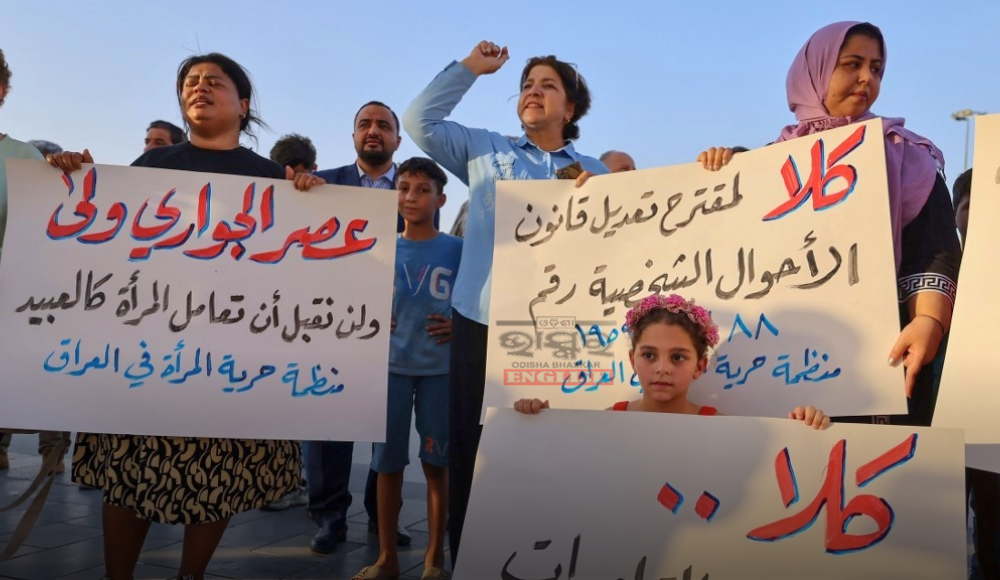Rights advocates are raising alarms over a controversial bill introduced to Iraq’s parliament that could undermine women’s rights and increase child marriage rates. The proposed legislation would allow Iraqi citizens to choose between religious authorities or the civil judiciary to resolve family matters. Critics argue that this shift could erode rights related to inheritance, divorce, and child custody, and potentially eliminate the minimum marriage age for Muslim girls, currently set at 18 by the 1959 Personal Status Law.
According to UNICEF, 28% of girls in Iraq are already married before 18, and Human Rights Watch (HRW) researcher Sarah Sanbar warns that passing this bill would represent a regression for the country. Amal Kabashi from the Iraq Women’s Network describes the bill as a move towards increased male dominance in family issues, amid ongoing protests by activists in Baghdad.
The 1959 Personal Status Law, enacted shortly after the fall of the Iraqi monarchy, transferred family law decisions from religious authorities to the state. The new amendment, backed by conservative Shiite Muslim deputies, would reintroduce religious rules, specifically from Shiite and Sunni sects, and exclude other religions and sects from the legislation.
The bill was withdrawn in late July but reemerged in early August with support from influential Shiite blocs. It must undergo three readings, thorough debate, and a unanimous vote to become law. Despite previous failed attempts, the bill could succeed due to its backing.
Constitutional expert Zaid Al-Ali critiques the bill for potentially giving men more power in family matters, including control over wealth and children. The amendment would allow religious institutions to propose rules for marriage, potentially undermining equality under Iraqi law and enabling marriages of girls as young as nine.




Comments are closed.